Leo XIV: “Jesus Christ, the Sower of Hope”
In his first general audience, the new Pontiff invites us to rediscover the transformative power of Jesus' parables and calls for an end to violence in the Holy Land
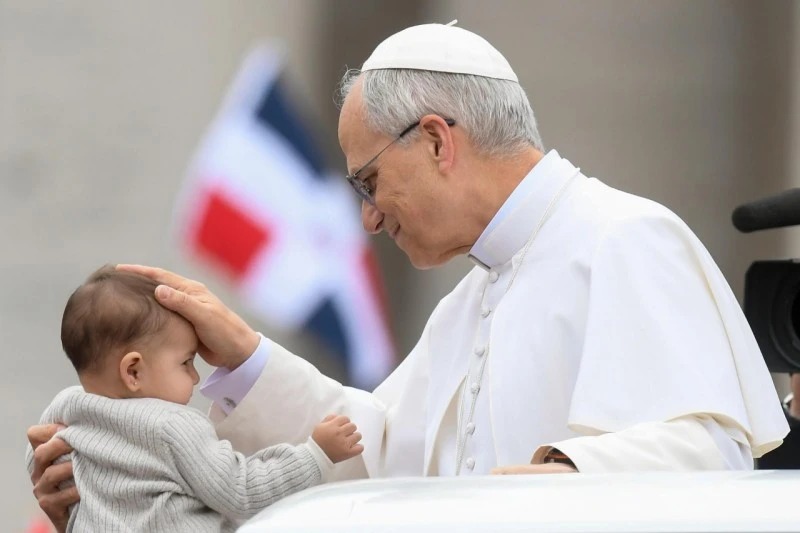
With St. Peter’s Square packed with faithful, Pope Leo XIV inaugurated his series of catechesis this Wednesday, marking a first step of great symbolic and pastoral power in his recent pontificate. In his message, two words resonated clearly: mercy and peace.
In his reflection, the Pope proposed returning to Jesus’ parables, those “jewels of the Gospel” that, he affirmed, have the power to open the human heart to hope and conversion. “The parables are like open windows to the heart of God,” he said, emphasizing that they are not simple tales with a cautionary tale, but authentic paths of encounter with the Lord. In particular, he recalled that these teachings of Christ reveal a God who never tires of reaching out to humanity, even when it is lost.
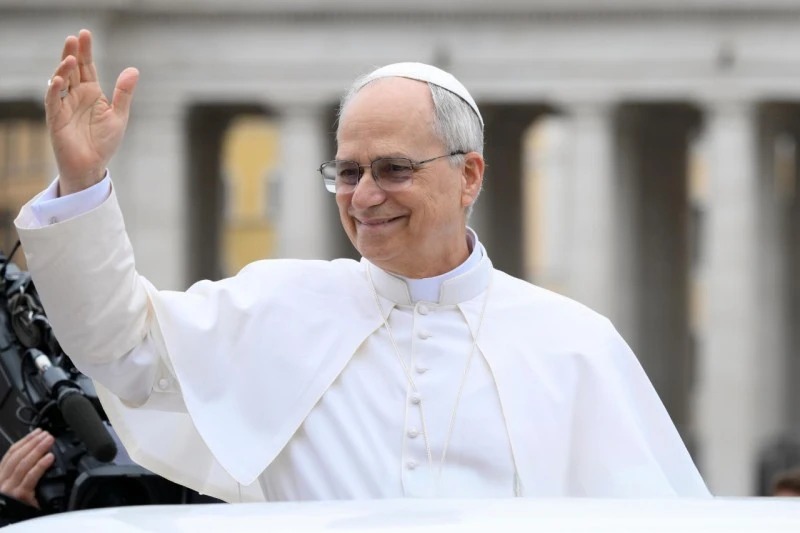
Leo XIV emphasized that the language of the parables challenges conscience, not through condemnation, but through an invitation to change. In a world wounded by haste, indifference, and superficiality, the Pope encouraged Christians to pause and allow themselves to be touched by the living Word of God, which, like a seed, can transform even the most arid soil.
But the catechesis was not the only powerful moment of this first audience. With a deep voice and compassionate gaze, the Pontiff launched a powerful appeal for peace, focusing especially on the tragic situation in Gaza. “War is always a defeat. And when innocent people die, especially children, the heart of God breaks,” he affirmed. His words, spoken in a measured but firm tone, provoked a moving silence among those present.
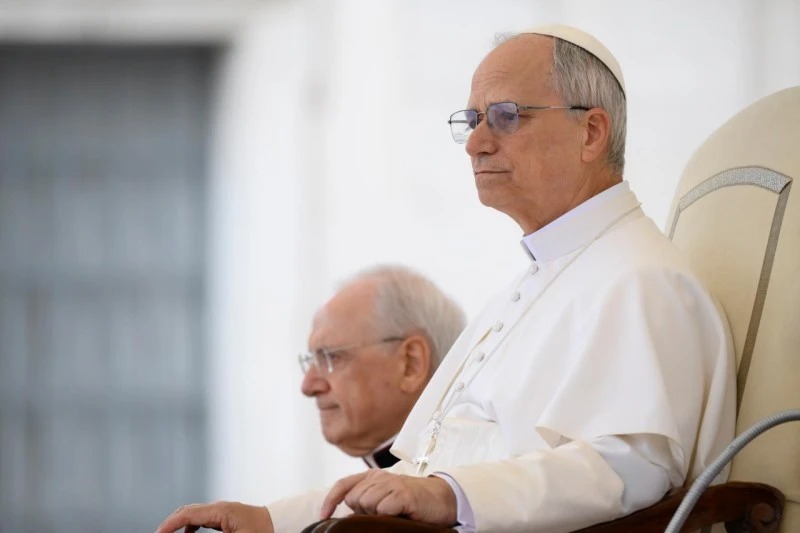
He asked the international community not to look the other way and called for concrete gestures of dialogue and reconciliation. “Humanity cannot grow accustomed to the suffering of others,” he declared, making it clear that his pontificate will move forward with an eye toward the most vulnerable.
This first general audience of Leo XIV left a clear imprint of the style he wants to imprint on his ministry: closeness, spiritual depth, and a resolute commitment to justice and peace. There were no grand theological discourses or complicated doctrinal formulas, but rather a message straight to the heart, where the Word of God and the suffering of the peoples embrace in a single cry.
Thus begins a new chapter for the universal Church, now led by a Pope who, in his first encounter with the faithful of the world, recalled that the Gospel is not an abstract idea, but a living force that can change the world… if we allow it to change us first.
***
Cycle of Catechesis – Jubilee 2025. Jesus Christ our Hope. II. The life of Jesus. The parables 6. The sower.
He spoke to them at length in parables (Mt 13:3a)
Dear brothers and sisters,
I am pleased to welcome you in this, my first general Audience. Today I will resume the cycle of Jubilee catecheses, on the theme “Jesus Christ Our Hope”, initiated by Pope Francis.
Let us continue today to meditate on the parables of Jesus, which help us to regain hope, because they show us how God works in history. Today I would like to dwell on a parable which is somewhat peculiar, because it is a sort of introduction to all the parables. I refer to that of the sower (cf. Mt 13:1-17). In a certain sense, in this account we can recognize Jesus’ way of communicating, which has a great deal to teach us for proclaiming the Gospel today.
Every parable tells a story that is taken from everyday life, yet wants to tell us something more, to refer us to a deeper meaning. The parable raises questions in us; it invites us not to stop at appearances. Before the story that is told or the image that is presented to me, I can ask myself: where am I in this story? What does this image say to my life? In fact, the term “parable” comes from the Greek verb paraballein, which means to throw in front of. The parable throws before me a word that provokes me and prompts me to question myself.
The parable of the sower talks precisely about the dynamic of the word of God and the effects it produces. Indeed, every word of the Gospel is like a seed that is thrown on the ground of our life. Jesus uses the image of the seed many times, with different meanings. In chapter 13 of the Gospel of Matthew, the parable of the sower introduces a series of other short parables, some of which talk precisely about what is happening on the terrain: the wheat and the weeds, the mustard seed, the treasure hidden in the field. What, then, is this soil? It is our heart, but it is also the world, the community, the Church. The word of God, in fact, makes fruitful and provokes every reality.
At the beginning, we see Jesus who leaves the house and gathers a great crowd around him (cf. Mt 13:1). His word fascinates and intrigues. Among the people there are obviously many different situations. The word of Jesus is for everyone, but it works in each person in a different way. This context allows us to understand better the meaning of the parable.
A rather unusual sower goes out to sow, but does not care where the seed falls. He throws the seeds even where it is unlikely they will bear fruit: on the path, on the rocks, among the thorns. This attitude surprises the listener and induces him to ask: how come?
We are used to calculating things – and at times it is necessary – but this does not apply in love! The way in which this “wasteful” sower throws the seed is an image of the way God loves us. Indeed, it is true that the destiny of the seed depends also on the way in which the earth welcomes it and the situation in which it finds itself, but first and foremost in this parable Jesus tells us that God throws the seed of his Word on all kinds of soil, that is, in any situation of ours: at times we are more superficial and distracted, at times we let ourselves get carried away by enthusiasm, sometimes we are burdened by life’s worries, but there are also times when we are willing and welcoming. God is confident and hopes that sooner or later the seed will blossom. This is how he loves us: he does not wait for us to become the best soil, but he always generously gives us his word. Perhaps by seeing that he trusts us, the desire to be better soil will be kindled in us. This is hope, founded on the rock of God’s generosity and mercy.
In telling the way in which the seed bears fruit, Jesus is also talking about his life. Jesus is the Word, he is the Seed. And the seed, to bear fruit, must die. Thus, this parable tells us that God is ready to “waste away” for us and that Jesus is willing to die in order to transform our life.
I have in mind that beautiful painting by Van Gogh, The sower at sunset. That image of the sower in the blazing sun also speaks to me of the farmer’s toil. And it strikes me that, behind the sower, Van Gogh depicted the grain already ripe. It seems to me an image of hope: one way or another, the seed has borne fruit. We are not sure how, but it has. At the centre of the scene, however, is not the sower, who stands to the side; instead, the whole painting is dominated by the image of the sun, perhaps to remind us that it is God who moves history, even if he sometimes seems absent or distant. It is the sun that warms the clods of earth and makes the seed ripen.
Dear brothers and sisters, in what situation of life today is the Word of God reaching us? Let us ask the Lord for the grace always to welcome this seed that is his Word. And if we realize we are not a fruitful soil, let us not be discouraged, but let us ask him to work on us more to make us become a better terrain.
***
APPEAL
The situation in the Gaza Strip is increasingly worrying and painful. I renew my heartfelt appeal to allow the entry of dignified humanitarian aid and to put an end to the hostilities, the heart-rending price of which is being paid by children, the elderly and the sick.
____________________________________________________
Special greetings:
I welcome the English-speaking pilgrims and visitors, especially those from England, Ireland, Hungary, Norway, Nigeria, Senegal, Tanzania, Australia, New Zealand, India, Indonesia, Malaysia, Mongolia, the Philippines, South Korea, Vietnam, Canada, and the United States. I greet in particular the Sisters of Saint Joseph of Annecy, the Pallottine Missionary Sisters of the Catholic Apostolate, the Daughters of Saint Jerome Emiliani, the Couples For Christ group, the pilgrims from the Diocese of Kerry, and an International group of young volunteers from Saint Cassian’s Centre. With prayerful good wishes that the present Jubilee of Hope may be for you and your families a time of grace and spiritual renewal, I invoke upon you all the joy and peace of the Lord Jesus.
_____________________________
Summary of the Holy Father’s words:
Dear brothers and sisters: I am happy to be with you in this, the first General Audience of my pontificate. Today, I would like to take up the series of catecheses on the Jubilee theme of “Christ our Hope” begun by Pope Francis, and reflect on Jesus’ parable of the sower and the seed. What can strike us is the generosity, even recklessness, with which the sower casts the seed on all kinds of soil, even the rocky terrain that seems most unpromising. Jesus explains that the seed is God’s word, which is meant to take root in the hearts of all, none excluded. We who hear this parable, and apply it to our own lives, may well feel challenged to become a better and more receptive terrain for the working of his grace. Yet the parable of the sower can also make us think of Jesus himself, who, in his death and resurrection, became the seed that fell to the ground and died in order to bear rich fruit. The image of the sower – we can think of the famous painting by Van Gogh – is thus one of hope in the promise of a coming harvest. Today, and every day, let us ask the Lord to open our hearts to his saving word and its power to transform and enrich our lives and the world in which we live.
Related
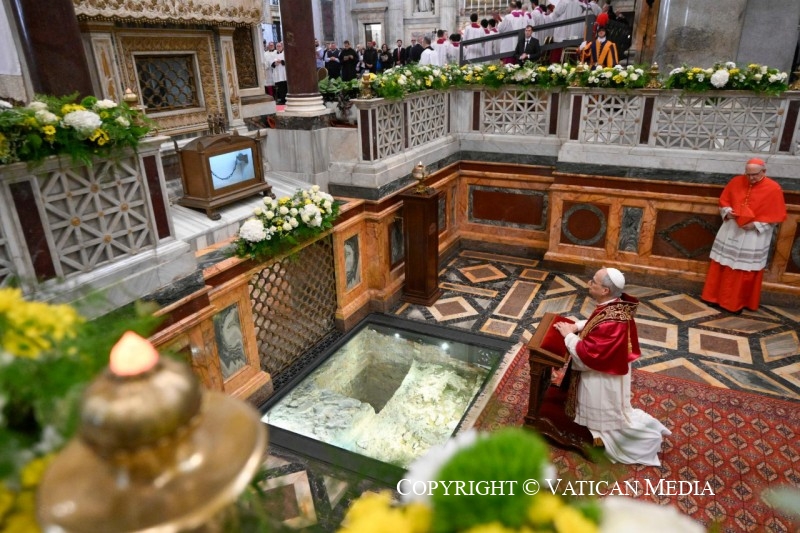
The Pope: God loves us. This is the great truth of our life and it gives meaning to everything else
Exaudi Staff
20 May, 2025
4 min
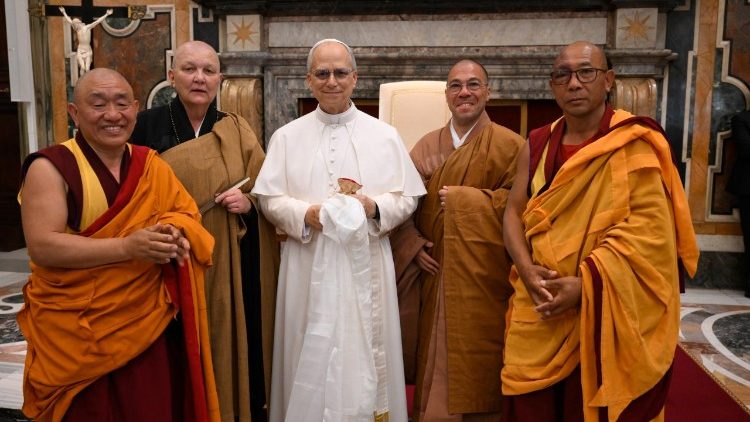
Leo XIV: “Let us say no to the economy that impoverishes”
Exaudi Staff
19 May, 2025
7 min
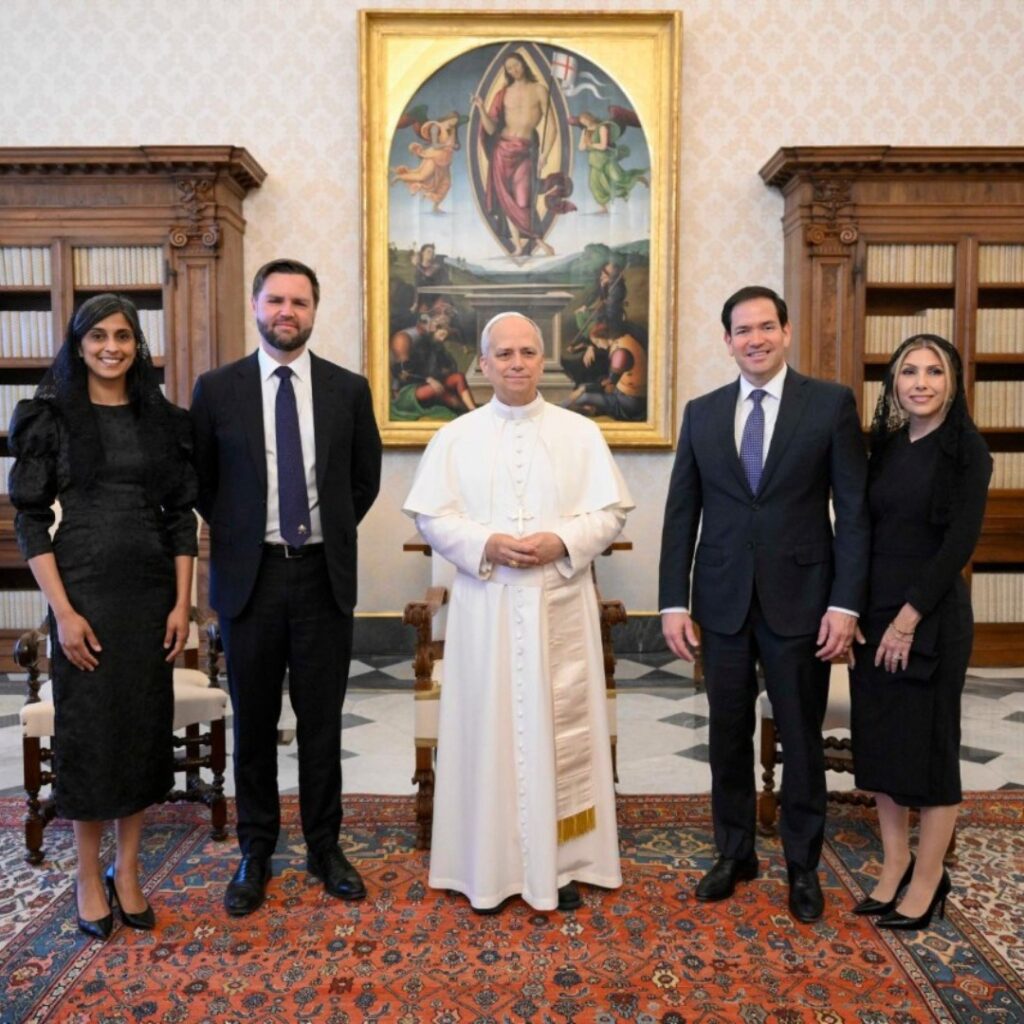
Pope Leo XIV Receives US Vice President Vance
Exaudi Staff
19 May, 2025
1 min
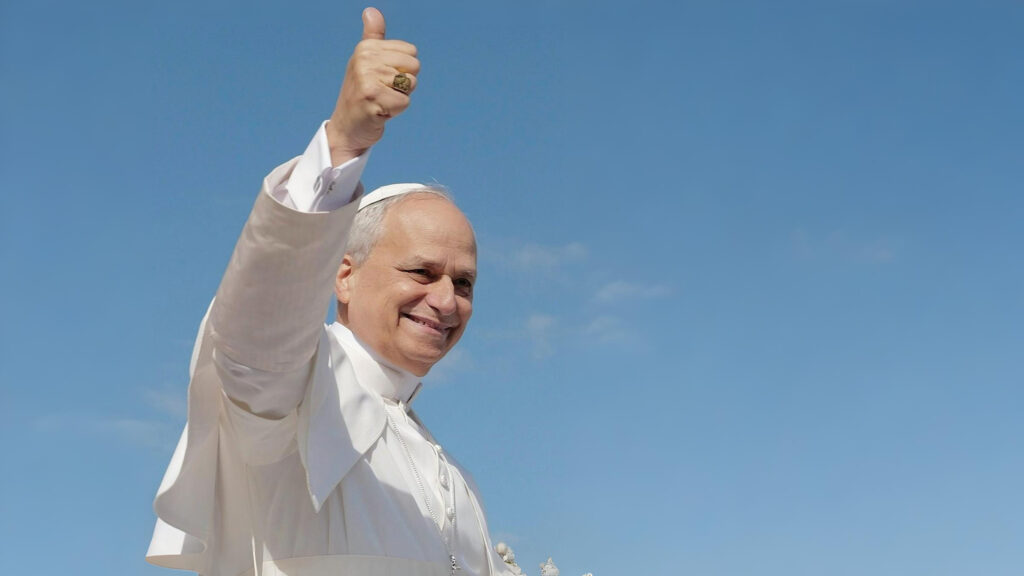
Leo proclaims the Gospel of love, unity, compassion, and fraternity
Exaudi Staff
18 May, 2025
9 min
 (EN)
(EN)
 (ES)
(ES)
 (IT)
(IT)

